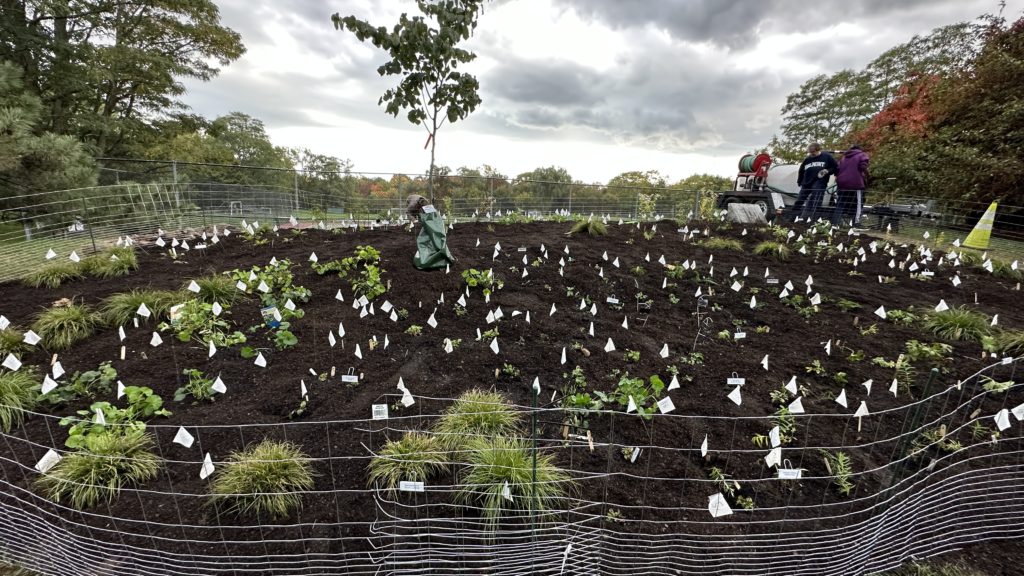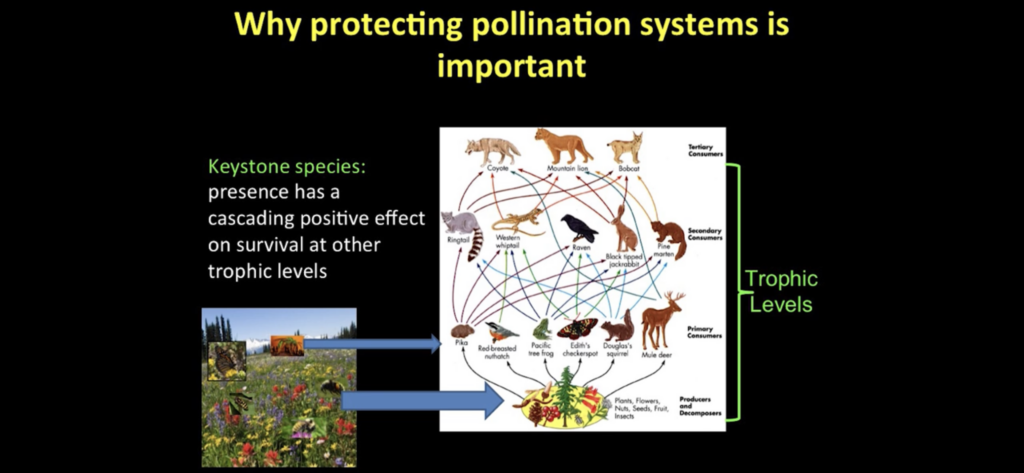Welcome to the Cold Spring Park Pollination Preservation Garden

Come visit the new pollination preservation garden at the park entrance between the driveway and tennis courts.
What’s a pollination preservation garden? Plants have been chosen based on Dr. Robert Gegear, UMass Dartmouth’s research on plants needed to support bumblebees and butterflies that are at risk of local extinction.
More than 85 percent of all plants require animals to pollinate them, a process essential for creating seeds and fruits and reproduction. Those animals, especially insects, are keystones in the food web that supports all the wildlife around us, and our own food supply.

Bumblebees are our most important local pollinators. In Massachusetts, we have already lost two of 12 bumblebee species. Another two–the golden northern and half-black bumblebees–were once common in Eastern Massachusetts but are now at risk of local extinction. More than 40 species of butterflies and moths, which are also pollinators, are also in decline and at risk, along with 113 other native bee species. The plants in this garden will support the two native bumblebee species, 10 species of butterflies, and many of the other native bee species at risk.
This garden is sponsored by the Friends of Cold Spring Park, with the approval of and assistance of the Newton Department of Parks, Recreation & Culture. It was planted as the Eagle Scout project of Dobi Wollaber, with Troop 209. Funding was provided by the Friends of Cold Spring Park, with the help of grants from Green Newton and Newton Conservators.
We hope that it will inspire you to use some of the plants here in your own yards, to help create pollinator pathways across Newton and neighboring cities and towns. Our website will soon be fleshed out with more information about the at-risk pollinators, the plants we have used, and links to much more information about what we can all do to preserve pollinators and the plants they depend on.
You can also see updates on our Facebook page, and the Facebook page of the Newton Community Pollinator Project. See also the article in the Fig City News.